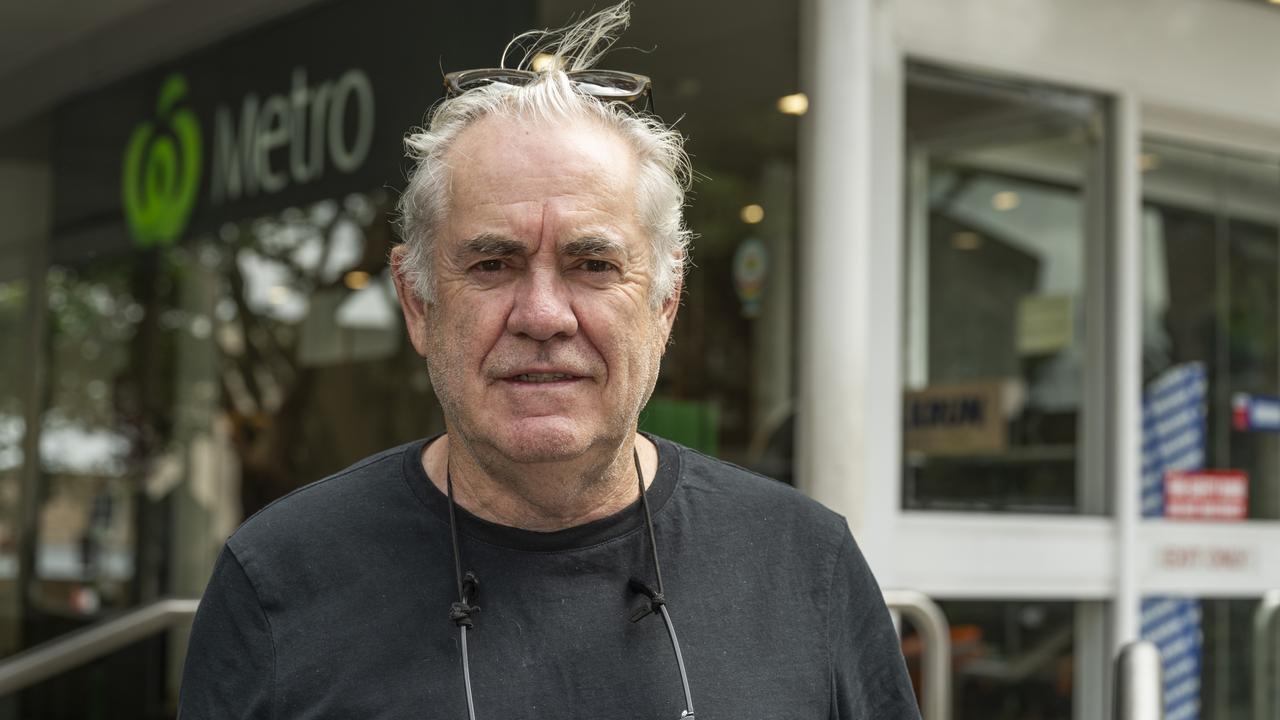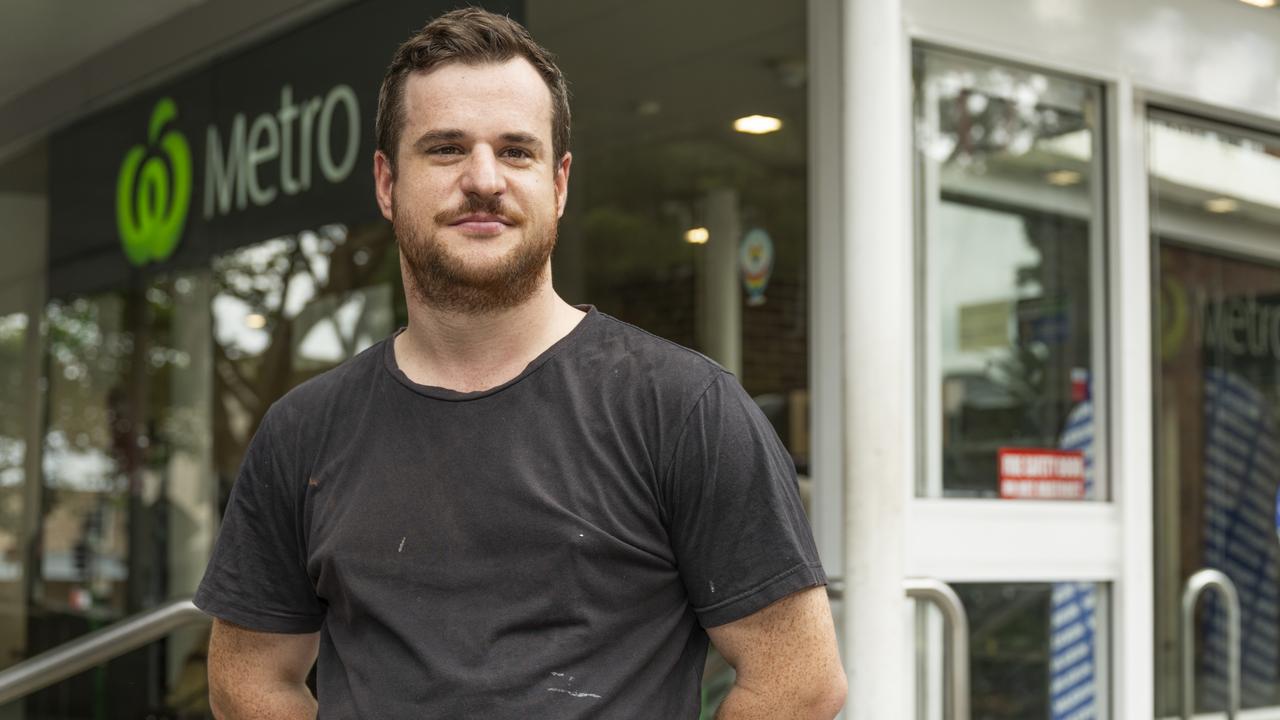Aussie family said they will ‘think twice’ before shopping at Woolies
Aussies have said they will ‘think twice’ before shopping at one major shopping chain, after its decision to no longer stock Australia Day Merchandise.
Two of the country’s biggest supermarkets are boycotting Australia Day merchandise, prompting a heated debate across the nation.
Woolworths on Wednesday announced the company would not be stocking Australian-themed items this year, claiming it was due to a decline in demand along with a “broader discussion” about what the day means to different people.
Aldi followed suit on Thursday, announcing it would also no longer stock Australia Day items.
Some Aussies are furious with the changes, with many claiming January 26 is a day to come together and celebrate the country.
However, for many First Nations people and other Australians, the contentious date is not considered a day of celebration, but one of mourning.
NCA NewsWire took tot he streets to see what everyday Australians think about these changes.


The All Australian Family
A Cronulla based family were all smiles as they described how it felt becoming Australian citizens on January 26th, 2000.
Husband and wife Russell and Marcia Harte said Australia Day is a special day for their family as it marks a significant milestone for them.
“We migrated from South Africa in 2000. My son William was also born that year. It will always be important to me,” Ms Harte said.

After the birth of their son, William Harte, now 23-years-old, Ms Harte said Australia gave her and her family a “new lease on life”.
“Australia Day is a very special day for us, I will always be thankful they [Australia] gave me and my family an opportunity to live in this beautiful country,” she said.
Choosing to spend the day gathered with family and friends, the Harte family said Australia Day is their way to give thanks to this “wonderful country”.
“The day is about celebrating family. It’s the Australian way of giving thanks,” Ms Harte said.
Hearing the news Woolworths had chosen to no longer stock merch for Australia Day, the couple said the supermarket’s choice could changed how their family will shop in the future.
“If I had known earlier, I would have thought twice before shopping here today,” she said.
Husband, Russell Harte agreed, “I was annoyed at hearing the news, they are a South African owned company!”.
The Thrifty Retiree
Leanne Hall, 62 from Little Bay, said Woolworth’s decision wouldn’t really affect her family or her shopping choices.
“To me there are other things more pressing to focus on, there are so many issues happening, that's what we need to focus on” she said.
The decision to not stock Aussie day merch also doesn’t matter to Ms Hall, as she shared she doesn’t really celebrate the day.
Ms Hall said she wouldn’t buy the ‘merch’ even if it were for sale.

“All those items just end up in landfill,” she said.
Instead she chooses to prioritise sustainable shopping and buying second-hand good wherever possible.
Ms Hall isn’t the only one who has concerns about the ‘one time use’ items ending up in landfill.
Zali Steggall told the Today Show on Friday that Australia produces 67 million tonnes per year of junk, and only 37 per cent gets recycled.
“Do we really need more plastic rubbish made in China that is going to last a day and then end up in landfill,” she said.
Ms Steggall then called out Peter Dutton for his comments, believing Mr Dutton only made them to “create division and looking for a headline”.
Instead Ms Steggall said policy makers should be focusing on the battlers of Australia doing it tough.
“If we want to talk about Australian values, putting food on the table is the most important thing. So let’s talk about price gouging by the major supermarket,” she said.
Battling Small Business Owner
Small business owner of “Simon says Juice”, Simon Fowler, 39 from Paddington, said while he thinks the giant supermarket chain was simply trying to “placate the public”, he does find the change “refreshing”.
“Look, it’s a step in the right direction,” he said.
“They [big companies] are just trying to appease people and are afraid to offend anyone.”

Having started his sustainable juice company ten years ago, Mr Fowler said he has spent many years familiarising himself with his local community and has a fair idea of what they want.
“These items are used for one day in the year, at best. Then they end up in landfill,” he said.
Believing big business are just using these sales to tap into “people’s core beliefs” to sell a product, Mr Fowler ultimately welcomed the change.
The Everyday Aussie Boomer
Victorian based film producer Michael Cook questioned the major retailers choice to not stock items, saying “Why not sell it?!”.
The 72 years-old from Daleford, Victoria, said he thought the decision was “pretty lousy”.
“It’s a day to celebrate, sure we argue about the date, but it’s still a celebration,” he said.

The Blue-collar Worker
Ashley Myatt, lift technician and 33 years-old from Croydon, said Woolworths has been out of touch with Australia for sometime now and this recent decision was simply another example of the company’s poor choices.
“They are supposed to be the ‘all Australian’ supermarket, they’re always showing Aussie farmers in their ads, but they aren’t supporting Aussie brands or produce,” he said.

Woolworths isn’t the only big brand to make the decision to stop stocking the items.
In 2023, Kmart confirmed it would no longer sell Australia Day merchandise in any stores.
Coles, however, have confirmed that it will still continue to sell a “small range” of merchandise in 2024 — rebranding their items as “Australia Day entertaining merchandise”.
“We know many people like to use this day as a time to get together and we offer a huge variety of products to help customers mark the day as they choose,” said a Woolworths Group spokesperson.
However, Opposition Leaders, Peter Dutton said people should boycott Woolworths until the company comes to its senses.
“I would advise very strongly to take your business elsewhere...I don’t think they should be supported by the public,” he said.



